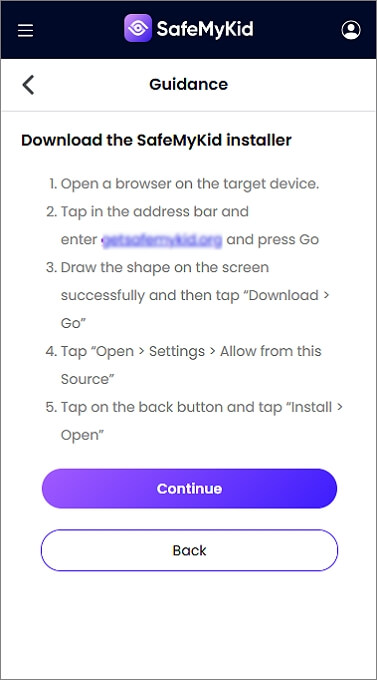10 Common Marriage Reconciliation Mistakes to Avoid after Infidelity

Rebuilding a marriage after infidelity is an emotional and complex process that requires patience, commitment, and open communication. The pain of betrayal can leave deep scars, and while reconciliation is possible, many couples make mistakes that can hinder the healing process.
In this article, we’ll explore 10 common marriage reconciliation mistakes to avoid after infidelity and provide insights on how to navigate this difficult journey. With the right approach, rebuilding trust and restoring emotional intimacy is achievable, but it takes effort from both partners.

10 Common Marriage Reconciliation Mistakes to Avoid after Infidelity
After experiencing infidelity, the road to reconciliation can be challenging and filled with emotional turmoil. To help you navigate this difficult journey, it's essential to be aware of the common mistakes that many couples make during this phase. Here are 10 critical errors to avoid to increase the chances of rebuilding trust and healing your relationship.
1. Rushing the Reconciliation Process
When the pain of infidelity is fresh, the temptation to quickly "fix" the relationship is high. Couples often rush because they fear losing the relationship or want to "move on" as quickly as possible.
However, rushing through reconciliation can prevent both partners from fully processing their emotions. Skipping the necessary time for healing may cause lingering resentment, unprocessed anger, and unresolved questions. It’s common for these emotions to resurface later, creating new problems.

What to Do Instead
- Take the time to grieve and process the affair.
- Use this period to understand the depth of the hurt and evaluate your readiness for reconciliation.
- Encourage open discussions and make space for emotional expression without fear of judgment or retaliation.
2. Avoiding Honest Communication
Communication after infidelity is often strained, but avoiding it altogether can damage reconciliation efforts. Some partners might avoid discussing the affair to "keep the peace," but this avoidance creates a communication void.

Key Points to Emphasize
- Address questions about the infidelity honestly. Even difficult truths can be less harmful than the lingering doubts caused by dishonesty.
- Speak openly about boundaries, trust issues, and the future of the relationship.
Practical Tips
- Set aside weekly check-ins to discuss progress.
- Use "I feel" statements to minimize blame and foster understanding.
3. Ignoring Professional Help
Trying to reconcile without external support often limits success. Some couples believe they can handle things on their own, while others worry about the stigma or costs associated with therapy.

The Benefits of Therapy
- Neutral third-party guidance can identify underlying issues.
- Therapists offer strategies for building communication and managing emotions.
- Therapy encourages both partners to view the affair within the broader context of the relationship dynamics.
Finding the Right Therapist
- Look for specialists in couples counseling or infidelity recovery.
- Ensure both partners are comfortable with the chosen therapist to facilitate openness.
4. Failing to Address the Root Cause of Infidelity
Failing to address the root cause of infidelity prevents lasting change. Without understanding why the affair occurred, efforts to rebuild trust will remain superficial and temporary.

Understanding the Root Causes
- Infidelity often stems from unmet emotional or physical needs, relationship dissatisfaction, or personal insecurities.
- External stressors like financial struggles or work pressures can exacerbate relationship tensions, increasing vulnerability to cheating.
Steps to Address the Root Cause
- Reflect on both personal and relationship factors.
- Discuss recurring conflicts or unaddressed issues with your partner.
- Identify changes needed to improve the relationship's stability.
5. Overemphasizing Forgiveness Without Actionable Steps
Forgiveness is essential, but without actionable steps to rebuild trust and change behavior, it’s ineffective. Both partners need consistent efforts for true healing and growth.

Why Forgiveness Alone is Insufficient
- Forgiving the partner without addressing the underlying behaviors that led to the betrayal often leads to repeated patterns.
- Couples who skip actionable rebuilding steps miss the opportunity to create a stronger, healthier foundation.
Actionable Steps to Pair with Forgiveness
- Create a “recovery agreement” to establish clear expectations moving forward.
- Introduce weekly “relationship audits” where both partners reflect on progress.
6. Allowing Guilt to Overshadow Healing
Allowing guilt to overshadow healing can disrupt relationship dynamics, preventing both partners from moving forward. It’s important to address guilt constructively for progress and growth.

How Guilt Impacts the Cheating Partner
- They may overcompensate by agreeing to unreasonable demands or failing to assert their needs, creating a cycle of imbalance.
- Long-term guilt without resolution leads to resentment and instability.
Expressing pain and anger is valid, but lingering guilt-inducing comments can hinder healing for both parties. Balance accountability with compassion.
7. Neglecting Individual Self-Care
Focusing entirely on the relationship while ignoring personal healing is a common pitfall. Reconciliation doesn’t just require fixing the relationship; both individuals must grow personally.

Steps in avoiding neglecting self-care.
- Practice mindfulness or meditation to manage stress.
- Engage in hobbies or activities that boost self-esteem and joy.
- Consider individual therapy to process your emotions independently.
8. Failing to Rebuild Trust Gradually
Trust is the cornerstone of reconciliation, and it takes time. Common Missteps can include:
- Pressuring a partner to trust again too soon.
- Failing to consistently demonstrate trustworthiness.

Rebuilding Trust the Right Way
- Establish transparency in all interactions, such as sharing passwords if mutually agreed upon.
- Be consistent in words and actions. Small, steady changes foster trust over time.
9. Not Establishing New Boundaries
One of the most critical yet often overlooked steps in rebuilding a relationship after infidelity is the creation of new boundaries. Boundaries serve as a protective framework that helps both partners feel safe and respected during the reconciliation process. Without them, old habits and patterns of behavior may resurface, increasing the risk of further hurt or misunderstandings.

Infidelity breaks the implicit trust and boundaries that govern most relationships. To heal and move forward, it’s essential to establish a new set of rules that clarify expectations, restore trust, and prevent future breaches. Here’s why they are critical:
- Rebuilding Trust: Clear boundaries give both partners a sense of control and predictability, which is vital for restoring trust.
- Preventing Misunderstandings: When expectations are not explicitly stated, assumptions can lead to new conflicts. Boundaries eliminate ambiguity.
- Setting New Norms: Infidelity often points to pre-existing relationship issues. New boundaries address and correct unhealthy dynamics to build a stronger foundation.
10. Underestimating the Role of Technology

Technology plays a pivotal role in reconciliation. Unmonitored device use after infidelity can foster mistrust. Utilizing monitoring tools can enhance transparency, provide reassurance, and helping rebuild trust throughout the healing process.
Monitoring with SafeMyKid: A Modern Solution to Avoid Common Marriage Reconciliation Mistakes after Infidelity
Rebuilding trust after infidelity is one of the most challenging aspects of marriage reconciliation, especially when technology has played a role in the betrayal. Whether it is through hidden apps, secret messages, or social media interactions, the potential for technology to harm the rebuilding process is significant. However, when used correctly, technology can also provide solutions that foster transparency, accountability, and trust.
One of the most effective tools for navigating this complex phase is SafeMyKid. Designed to help families monitor device usage, SafeMyKid has become an invaluable tool for couples working through infidelity recovery.

Key Features of SafeMyKid
SafeMyKid offers a range of features that help monitor suspicious activities without unnecessary invasions of privacy. Here’s what makes SafeMyKid an essential tool for relationship transparency and digital safety:
- App Monitoring – Tracks app usage to identify and prevent secret communication on hidden messaging platforms. This ensures that no deceptive conversations take place on apps disguised as harmless tools.
- Location Tracking – Offers real-time GPS tracking to ensure safety and transparency in movements, helping to rebuild trust through openness about whereabouts.
- User-Friendly Interface – Designed for ease of use, SafeMyKid is simple to install and operate, making it accessible even for those who aren’t tech-savvy.
By integrating these features, SafeMyKid helps couples create an environment of honesty and accountability, allowing them to move forward with confidence in their reconciliation journey.
Steps to Use SafeMyKid to Avoid Common Marriage Reconciliation Mistakes after Infidelity
As you work through the complexities of reconciliation, using tools like SafeMyKid can help prevent common mistakes and ensure transparency. Below, we outline the steps to effectively use SafeMyKid to support your journey toward healing and trust-building after infidelity.
Step to use SafeMyKid on Android Devices to avoid Common Marriage Reconciliation Mistakes after Infidelity
Step 1. Register and set up your account with your email address.

Step 2. Set up the SafeMyKid app on the target Android.

Step 3. Begin to ensure you avoid common marriage reconciliation mistakes by remotely monitoring your partner in real time through SafeMyKid’s online dashboard.

Step to use SafeMyKid on Apple Devices to avoid Common Marriage Reconciliation Mistakes after Infidelity
Step 1. Sign up for free by providing your valid email address.

Step 2. No need to install any apps! Just configure SafeMyKid on the target iPhone using the owner's iCloud account details.

Step 3. Begin to use SafeMyKid for remote monitoring from the online dashboard to prevent common marriage reconciliation mistakes after infidelity.

While official methods, like device settings or app permissions, are helpful, they lack the comprehensive functionality of SafeMyKid. These methods also require manual checks, which can become tedious and ineffective over time.
Why Choose SafeMyKid?
SafeMyKid provides a reliable solution for couples looking to establish accountability while respecting each other’s boundaries. SafeMyKid offers an array of qualities designed to promote transparency and accountability in your relationship:
- Comprehensive App Monitoring: SafeMyKid allows you to view the apps installed on an Android device and track their usage. This ensures that both partners maintain transparency in their technology interactions and prevents the use of secret apps or messaging platforms.
- Real-Time Location Tracking: With GPS tracking, SafeMyKid lets you view the location of the device in real time. This can provide additional peace of mind in situations where infidelity involves lying about one’s whereabouts.
- Detailed Activity Reports: Generate and review reports about the usage patterns of the monitored Android device. These reports provide insights into communication, app behavior, and browsing activities, ensuring accountability.
- Customizable Settings: SafeMyKid offers options to adjust the level of monitoring based on mutual agreements, promoting balanced transparency without overstepping boundaries.
- Stealth Operation: The app operates discreetly in the background to ensure seamless performance without interruptions to the user’s normal phone usage.
FAQs about Marriage Reconciliation after Infidelity
Rebuilding a marriage after infidelity comes with many challenges, and couples often have lingering questions about the reconciliation process. Below, we address some of the most frequently asked questions about marriage reconciliation after infidelity to help you navigate this difficult but hopeful path.
1. How long does it take to rebuild trust after infidelity?
Rebuilding trust varies for each couple and depends on the severity of the infidelity, the willingness of both partners to commit to the reconciliation process, and the effort invested. It can take several months to years, but progress happens faster when both partners work actively toward healing.
2. Should we see a counselor or therapist even if we think we’re doing okay?
Yes, counseling can benefit any couple working through infidelity. Therapists provide neutral perspectives, tools for effective communication, and guidance for resolving deeper issues that might go unnoticed.
3. How can I forgive my partner after being cheated on?
Forgiveness is a gradual process that requires emotional understanding, effort from both partners, and a genuine commitment to reconciliation. While it's difficult, many people find that therapy, open conversations, and rebuilding trust through transparent actions help them reach forgiveness over time.
4. Is it normal to still feel suspicious or insecure after reconciliation starts?
Yes, feelings of suspicion or insecurity are common after infidelity and part of the healing process. These emotions diminish as trust is rebuilt, but they should be acknowledged and discussed openly without being ignored.
5. How do I know if my partner is serious about reconciling?
Signs that your partner is serious about reconciliation include:
- Taking responsibility for their actions.
- Being patient with your emotions and healing process.
- Actively participating in conversations and actions to rebuild trust.
6. Can infidelity actually strengthen a relationship in the long term?
While painful, some couples find that infidelity becomes a turning point that inspires honest communication, stronger boundaries, and a deeper understanding of each other's needs. However, this outcome requires intense effort and commitment from both partners.
Conclusion
Marriage reconciliation after infidelity is a challenging but achievable process. By steering clear of these 10 common marriage reconciliation mistakes to avoid after infidelity, couples can create a solid foundation for healing and rebuilding trust.
Utilizing tools like SafeMyKid can enhance transparency while maintaining healthy boundaries, helping both partners navigate this delicate journey with greater confidence. Ultimately, patience, open communication, and mutual effort are essential in fostering a stronger, more resilient relationship after betrayal.


